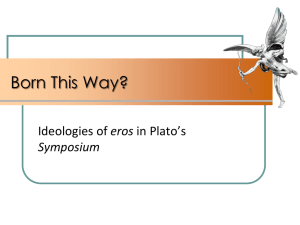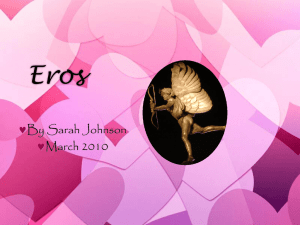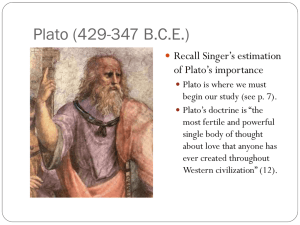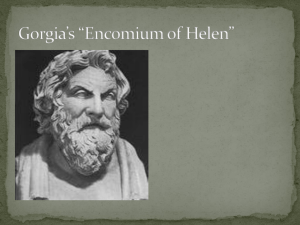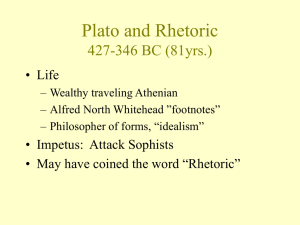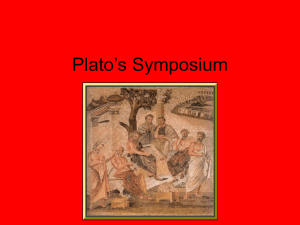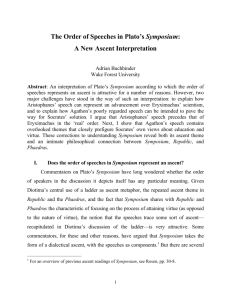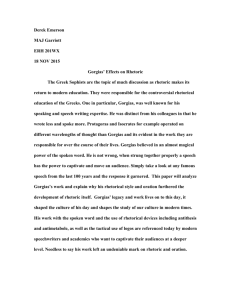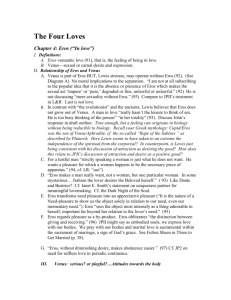Abstract
advertisement
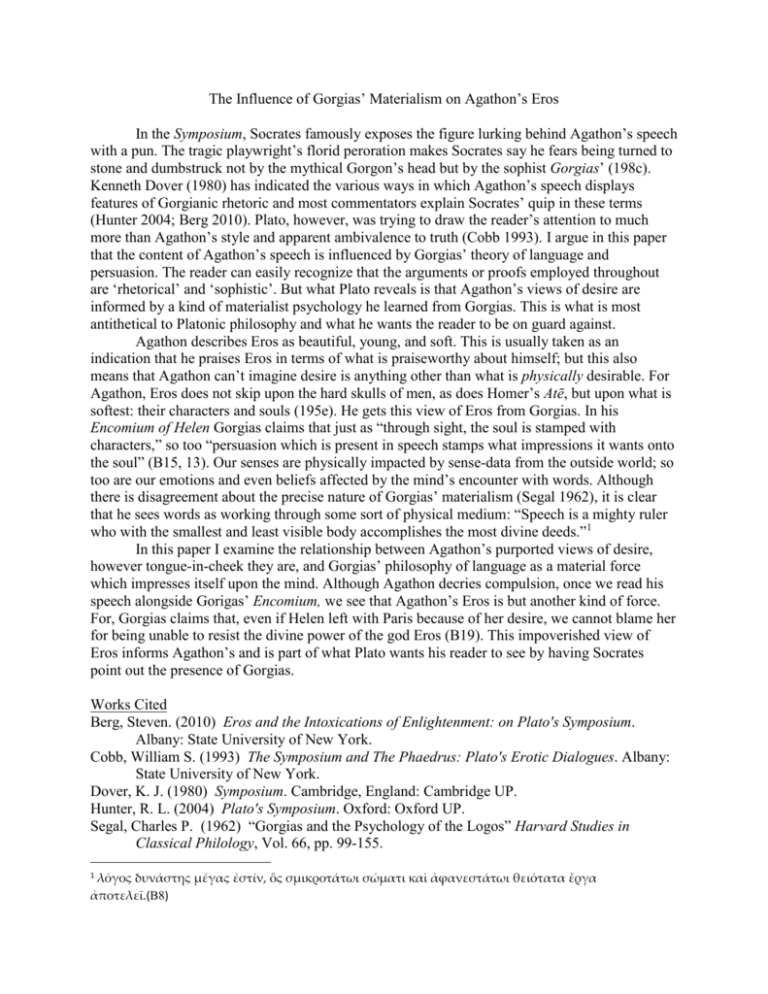
The Influence of Gorgias’ Materialism on Agathon’s Eros In the Symposium, Socrates famously exposes the figure lurking behind Agathon’s speech with a pun. The tragic playwright’s florid peroration makes Socrates say he fears being turned to stone and dumbstruck not by the mythical Gorgon’s head but by the sophist Gorgias’ (198c). Kenneth Dover (1980) has indicated the various ways in which Agathon’s speech displays features of Gorgianic rhetoric and most commentators explain Socrates’ quip in these terms (Hunter 2004; Berg 2010). Plato, however, was trying to draw the reader’s attention to much more than Agathon’s style and apparent ambivalence to truth (Cobb 1993). I argue in this paper that the content of Agathon’s speech is influenced by Gorgias’ theory of language and persuasion. The reader can easily recognize that the arguments or proofs employed throughout are ‘rhetorical’ and ‘sophistic’. But what Plato reveals is that Agathon’s views of desire are informed by a kind of materialist psychology he learned from Gorgias. This is what is most antithetical to Platonic philosophy and what he wants the reader to be on guard against. Agathon describes Eros as beautiful, young, and soft. This is usually taken as an indication that he praises Eros in terms of what is praiseworthy about himself; but this also means that Agathon can’t imagine desire is anything other than what is physically desirable. For Agathon, Eros does not skip upon the hard skulls of men, as does Homer’s Atē, but upon what is softest: their characters and souls (195e). He gets this view of Eros from Gorgias. In his Encomium of Helen Gorgias claims that just as “through sight, the soul is stamped with characters,” so too “persuasion which is present in speech stamps what impressions it wants onto the soul” (B15, 13). Our senses are physically impacted by sense-data from the outside world; so too are our emotions and even beliefs affected by the mind’s encounter with words. Although there is disagreement about the precise nature of Gorgias’ materialism (Segal 1962), it is clear that he sees words as working through some sort of physical medium: “Speech is a mighty ruler who with the smallest and least visible body accomplishes the most divine deeds.”1 In this paper I examine the relationship between Agathon’s purported views of desire, however tongue-in-cheek they are, and Gorgias’ philosophy of language as a material force which impresses itself upon the mind. Although Agathon decries compulsion, once we read his speech alongside Gorigas’ Encomium, we see that Agathon’s Eros is but another kind of force. For, Gorgias claims that, even if Helen left with Paris because of her desire, we cannot blame her for being unable to resist the divine power of the god Eros (B19). This impoverished view of Eros informs Agathon’s and is part of what Plato wants his reader to see by having Socrates point out the presence of Gorgias. Works Cited Berg, Steven. (2010) Eros and the Intoxications of Enlightenment: on Plato's Symposium. Albany: State University of New York. Cobb, William S. (1993) The Symposium and The Phaedrus: Plato's Erotic Dialogues. Albany: State University of New York. Dover, K. J. (1980) Symposium. Cambridge, England: Cambridge UP. Hunter, R. L. (2004) Plato's Symposium. Oxford: Oxford UP. Segal, Charles P. (1962) “Gorgias and the Psychology of the Logos” Harvard Studies in Classical Philology, Vol. 66, pp. 99-155. 1 λόγος δυνάστης μέγας ἐστίν, ὃς σμικροτάτωι σώματι καὶ ἀφανεστάτωι θειότατα ἔργα ἀποτελεῖ.(B8)
